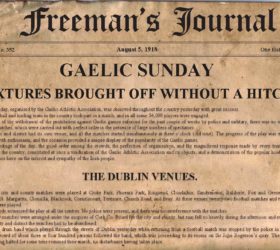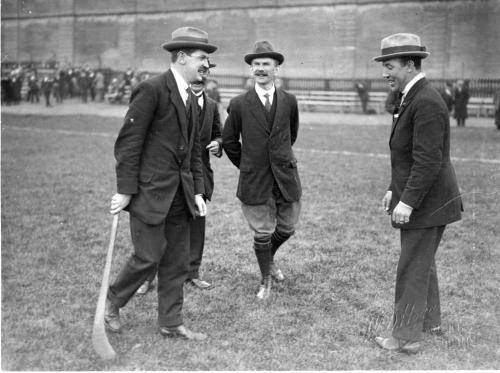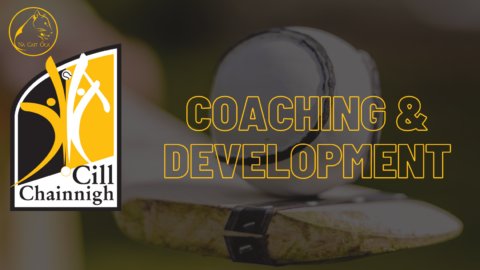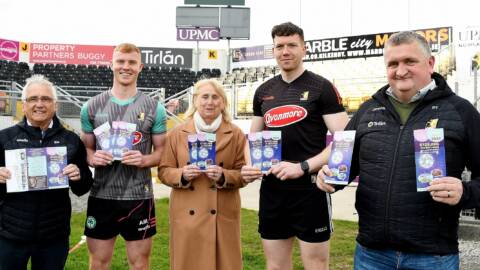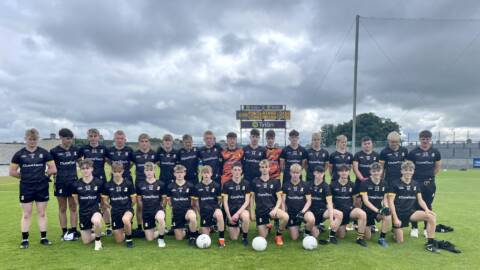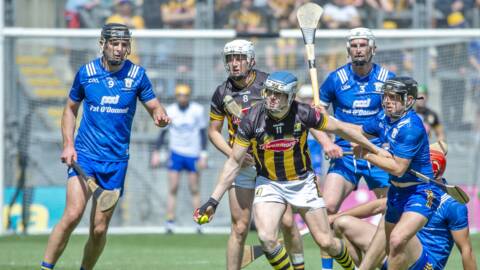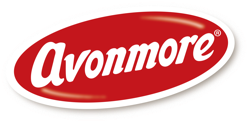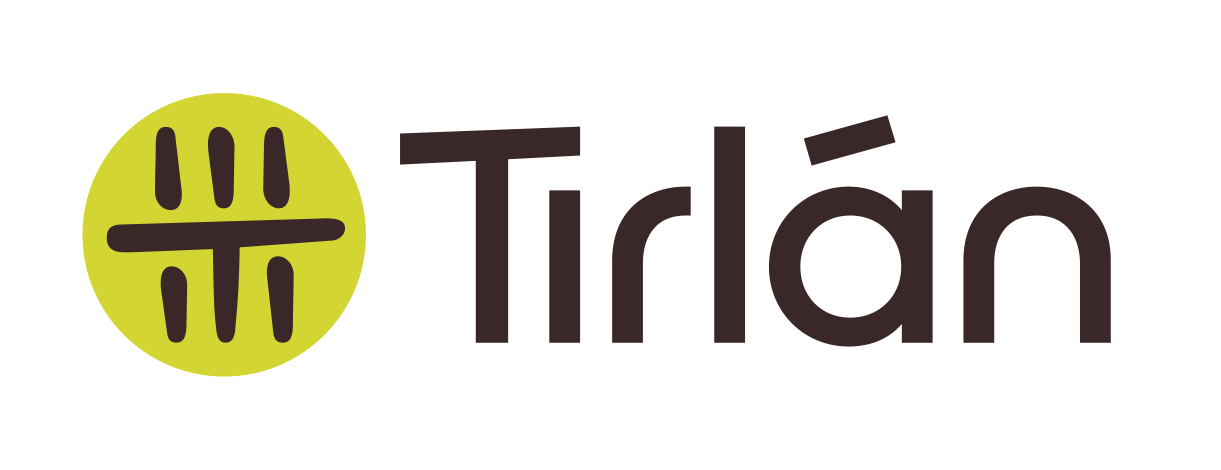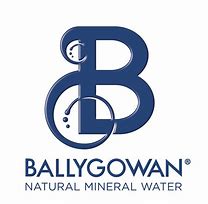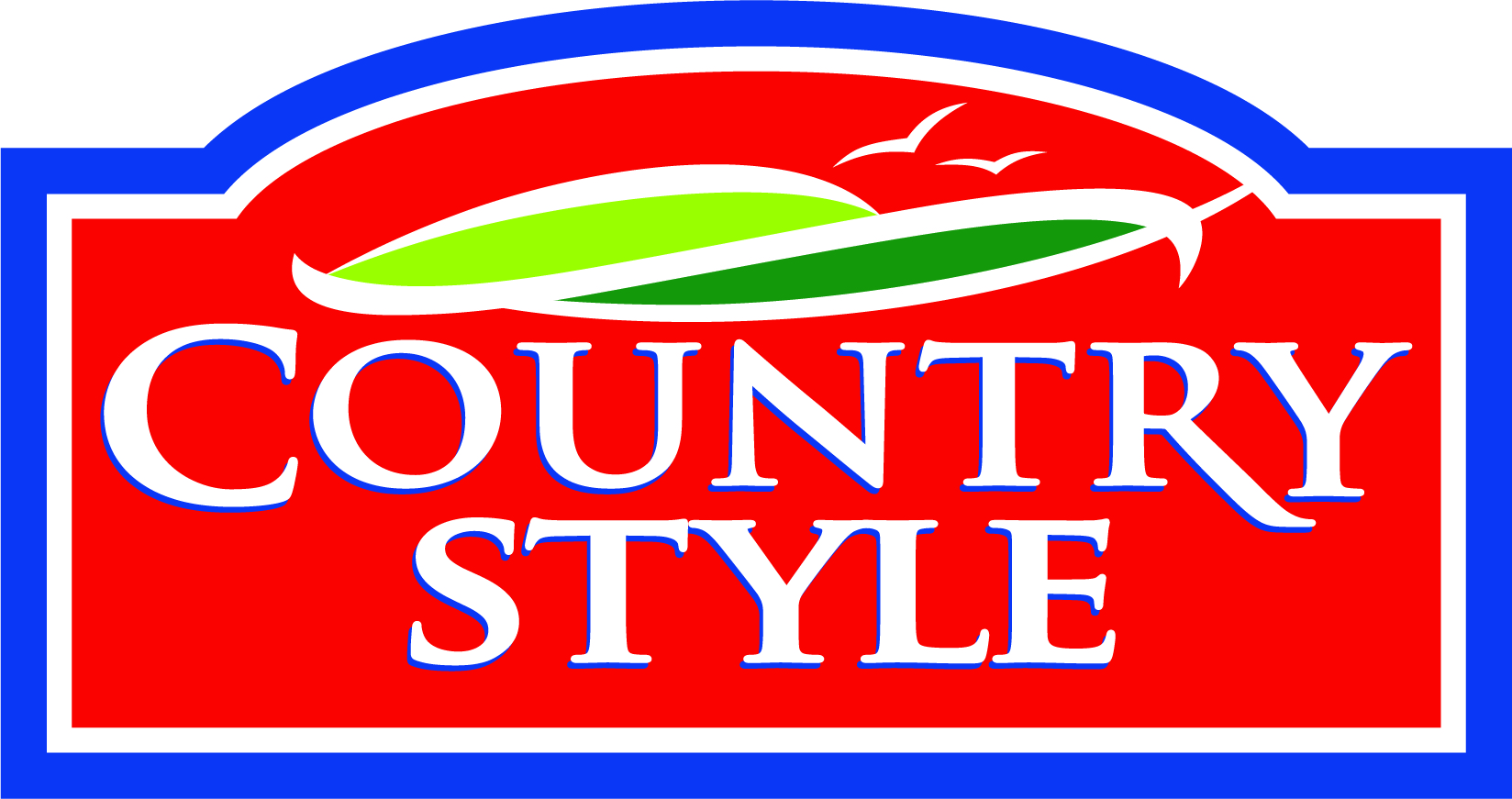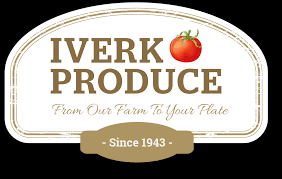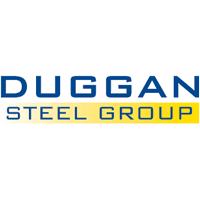Commemorating Gaelic Sunday 1918
August 4, 1918 will be remembered as one of the most remarkable and significant days in the history of the GAA. Known as Gaelic Sunday – it was a day when the clubs of the GAA stood against the British Empire and triumphed in a peaceful protest through the playing of Hurling, Gaelic Football and Camogie.
At that time in this country the British authorities sought to impose conscription to supplement their war effort, but this was met with major opposition in Ireland. The British authorities laid the blame for this opposition at the door of the GAA and their response was to prevent games from taking place, preventing the trains from carrying supporters and also insisting that a written permit was required to enable any GAA match to take place.
The GAA was defiant in its opposition to this regulation from the British Authorities. The communications from the then Director General of the GAA Luke O’Toole was very emphatic:
“……..…. under no circumstances must a permit be applied for either by Provisional Councils, Co. Committees, Leagues, Tournament Committees, Clubs, or by a third party such as Secretaries of Grounds, etc. Any individual or Club infringing the foregoing order becomes automatically and indefinitely suspended”.
The GAA in response to the actions of the British authorities declared a national day of defiance and called on its clubs all over Ireland to refuse to seek a permit and instead organise club activity for 3.00 p.m. on Sunday 4th August. The then Secretary of the Leinster Council, Frank Shouldice recalled in a statement to the Bureau of Military History that the logic of the day was that:
“the Crown Forces could not be everywhere at the same moment … the result was that more hurling and football matches were played in the country on Gaelic Sunday than ever took place on the one day in the history of the GAA”.
It is estimated that 54,000 players participated that afternoon, with more than 100,000 spectators watching the games. Such was the success of the GAA initiative that the attempt to impose a requirement for a licence to play Gaelic games was scrapped by the British authorities.
The following is an extract from the Freeman’s Journal of the 5th August 1918 on the Gaelic Sunday activities:
“Gaelic Sunday, organised by the Gaelic Athletic Association was observed throughout the country yesterday with great success. Every football and hurling team in the country took part in a match, and in all some 54,000 players were engaged. As a result of the withdrawal of the prohibition against Gaelic Games enforced for the past couple of weeks by police and military, there was no interference with the matches, which were carried out with perfect order in the presence of large numbers of spectators. Every town and district had its own venue, and all the matches started simultaneously at three o’clock (old time).
The progress of the play was everywhere followed with enthusiasm, and the occasion provided a unique display of the popularity of the Gaelic games. The proceedings of the day, the good order among the crowds, the perfection of organisation, and the magnificent response made by every team and club throughout the country, constituted at once a vindication of the Gaelic Athletic Association and its objects, and a demonstration of the popular hold which the Gaelic games have on the interests and sympathies of the Irish people. Large crowds witnessed the play at all the centres. No police were present, and there was no interference with the matches”.
Kilkenny GAA County Board held a special meeting to arrange its fixtures for Sunday 4th August 1918. These were as follows:
Conagh v Dunmore (at Dunmore); C.Y.M.S. v Grange (at Grange); Kells v Coolagh (at Callan); Blanchfield Park v Gowran (at Paulstown); Hugginstown v Kilmoganny (at Hugginstown); Cappagh v Milebush (at Milebush); Glenmore v Tullogher (at Ballyfacey); Mangan v Coolroe (at Graigue); Glenmore v Bigwood (at Bigwood); Foulkstown v Dicksboro (at St. James’ Park); Conahy v Tulla United (at Threecastles); Freshford v Clomanto (at Clomanto); Crosspatrick v Horse & Jockey (at Johnstown); Ballycloven v Tullaroan (at Kilmanagh); Callan v Kilmanagh (at Callan); Dunamaggin v Ahenure (at Dunamaggin); Knockmoylan v Mullinavat (at Mullinavat); Lukeswell v Killahy (at Killeen); Graigue v Mangan (at Graigue); Bennettsbridge v Thomastown (at Thomastown); Chapelhill v Ballyhale (at Knocktopher); Suirside Rovers v Ramblers (at Mooncoin); Piltown v Templeorum (at Piltown); Davidstown v Slieverue (at Slieverue).
Some of the clubs listed about are either no longer in existence or are now part of a different club. It is noticeable that some clubs are listed to play two games. One can only assume that perhaps one was a hurling game and the other a football game.
There is a rather interesting footnote to the game listed about for Mullinavat between Knockmoylan and Mullinavat. With the British authorities aware that the game was scheduled for 3.00 p.m. in Mullinavat, they surrounded the Mullinavat pitch with the clear intention of preventing the game taking place (although this is somewhat at odds with what was noted in the Freeman’s Journal the following day).
The wise men and women of Mullinavat and Knockmoylan had anticipated this happening, so unknown to the British authorities they arranged to play the game at a different venue. A decent crowd, it is reported, turned out also to support both teams. And the result; well it ended in a scoreless draw. nevertheless, the clubs were more than happy with the outcome, especially the outwitting of the British authorities as to the venue.
One noted account of the success of the games on Gaelic Sunday was given by Tommy Moore of Dublin who was a member of the Faughs GAA Club (and after whom the All-Ireland Club Hurling Cup is named). Moore wrote:
“From Jones’s Road to the craggy hillsides of the Kingdom the day was fought and won in fields no bigger than backyards, in stony pastures and on rolling plains … wherever posts could be stuck and spaces cleared, the descendants of Fionn and the Fianna routed the seal of servitude. In one never to be forgotten tournament we crossed our hurleys with the lion’s claw and emerged victorious”.
The events of the 4th August 1918 were recently mentioned in an article which appeared in Sports Illustrated magazine of the 9th July. The American publication has an estimated twenty-three million readers weekly, so when journalist Charles P. Price writes about an event in Ireland one hundred years ago it is sure to make a few people in the US sit up and take notice.
The context to the article by Price is the current less than friendly relationship between President Donal Trump and the National Football League (NFL) which has led to number very public spats in the past year.
Price asserts that “if the NFL wants to maintain its independence, to say nothing of simple self-respect, Roger Goodell (he is the NFL CEO) could use a little Luke O’Toole (the GAA Director General in 1918) in him’. We await developments in the US with interest, but it is doubtful if the successful tactics of the GAA in 1918 against the British authorities would unduly worry the current incumbent of the White House in Washington DC.
This year, 2018, marks the centenary of that courageous act and the GAA is keen for members, players and supporters all over Ireland to show a similar level of pride in their club, their games and the area they represent.
On the weekend of August 4th and 5th 2018 the GAA is appealing to clubs to hold their own club activity as part of commemorating that historic event. The GAA is not being prescriptive as to the nature of a club’s commemorative event. It could be an internal club tournament, a challenge game (perhaps against the same opponents as in 1918), a family day or a club history exhibition.
Gaelic Sunday has never received the same publicity as Bloody Sunday which took place two years later. Yet, it is an important occasion in the history of the GAA and indeed in the history of this country.
END
